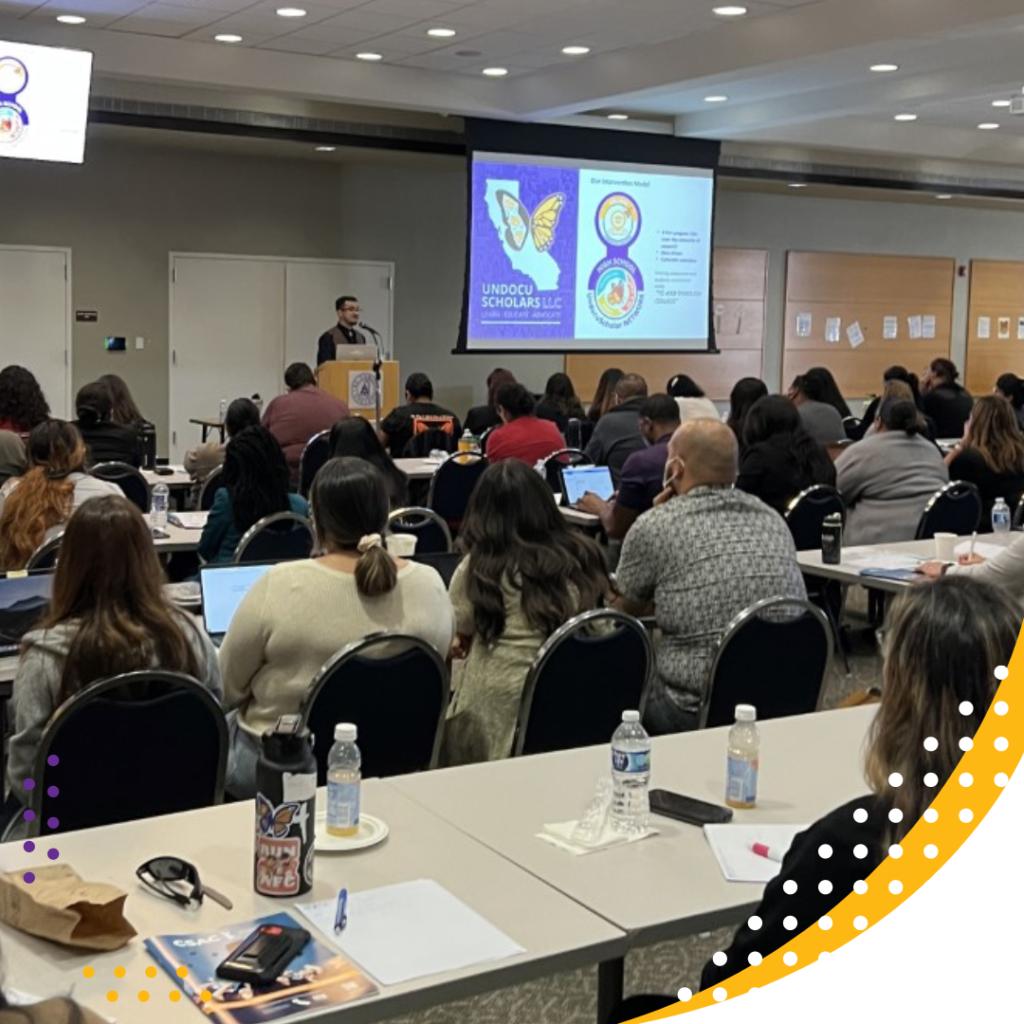On October 5th, UndocuScholars LLC spoke on the importance of Cultural Interventions for two important bodies changing the face of educational UndocuResources in the country. Although UndocuCulture is not widely studied, it still impacts the way immigrant communities engage with institutions connected to the government.

In collaboration with the California Student Aid Commission, Immigrants Rising invited us to highlight cultural barriers that stop undocumented students from reaching out for resources like financial aid. Similarly, the California Community Colleges Chancellor’s Office opened a space for us to speak on healing common cultural responses to institutional barriers.
These two events reinforced the need for one of our core missions: to heal cultural barriers, while organizations address institutional ones.
Four Reflections During the Events:
1. So many educators carried a powerful drive to help undocumented students. As much work as there is still to be done, we were grateful to see the level of institutional support for UndocuResources. Diverse educators came together, seeking better ways to engage with students who (rightfully) still distrust institutions— learning complicated processes for those students; taking the brunt of red tape for those students.
2. There truly is a need for cultural interventions that dispel previously-needed fears. Culture can be slow to change. Even though educational institutions are rectifying institutional barriers, those barriers stood firm for too long. Immigrants also continue to live under constant images of immigrant dehumanization. To heal wounds in UndocuCulture, we need to show how schools are safe and valuable for undocumented immigrants.
3. UndocuEfforts in individual high schools often remain under the leadership and responsibility of a dedicated few. While this can create strong nuclei of expertise, these hubs are tenuous. When the commitment falls on just one person (or three), pillars of support can collapse due to burnout, transfers… budget cuts. A spreading of responsibility across the school at large is more sustainable.
4. Finally, although our priority is engaging undocumented families in the education of their students, we are excited to speak more with educators. Buy-in for the development of undocumented Californians can’t come from an educator’s personal passion alone. It is, first and foremost, a responsibility of the profession.
